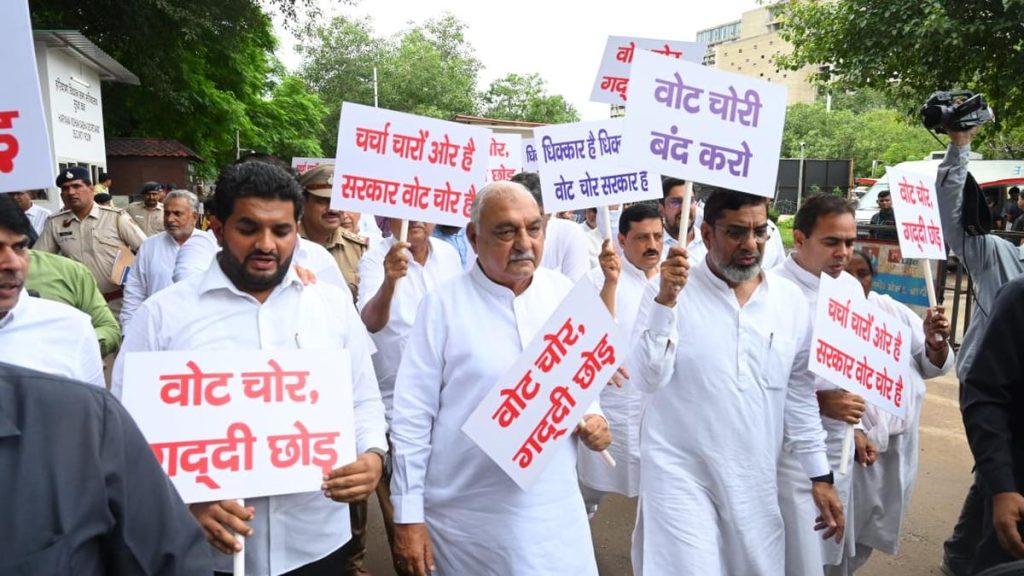Now Reading: Government Is a Constitutional Employer, Cannot Exploit via Outsourcing: Supreme Court
-
01
Government Is a Constitutional Employer, Cannot Exploit via Outsourcing: Supreme Court
Government Is a Constitutional Employer, Cannot Exploit via Outsourcing: Supreme Court
Speedy Summary
- judgment: The supreme Court of India ruled that public institutions cannot exploit long-term ad hoc employees by using outsourcing as an excuse to avoid regularisation or pay parity.
- Observation: A Bench comprising Justices Vikram Nath and Sandeep Mehta stated that outsourcing should not perpetuate precarious employment practices for workers performing inherently perennial tasks.
- Appeal Details: The case involved daily wage workers from the Uttar Pradesh Higher Education Services Commission, whose plea for regularisation was previously denied due to financial constraints and lack of vacancies.
- Key Points from Judgment:
– Financial strain does not override fairness or lawful engagement practices in public employment.
– Government departments must maintain accurate records and justify temporary worker engagements in cases of recurring work.
– Long-term reliance on ad hocism undermines constitutional discipline and erodes confidence in public administration.
– As a “constitutional employer,” the State must ensure sanctioned positions, budgets for lawful engagement, and compliance with judicial directives.
Indian Opinion analysis
The Supreme Court’s ruling addresses meaningful concerns about labour exploitation in public institutions through prolonged ad hoc arrangements. It reinforces the principle that fairness and legality must take precedence over financial stringency when employing individuals for perennial roles. For India, this judgment draws attention to systemic issues such as administrative opacity, lack of compliance with constitutional standards, and insufficient investment in creating permanent roles to meet ongoing workforce needs.
In practical terms, this decision may encourage accountability within government bodies by requiring them to justify temporary work arrangements with evidence while ensuring ethical employment practices. The emphasis on maintaining accurate records aligns with broader goals of openness. While implementation poses logistical challenges due to strained budgets across sectors, enforcing constitutional discipline is critical for safeguarding employee rights-ultimately strengthening trust in public administration systems.
Read more: Source Link

























